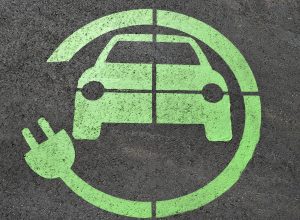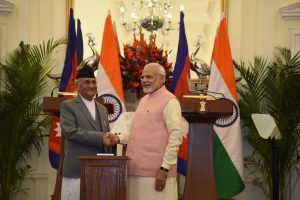
15-05-2018 (Important News Clippings)
To Download Click Here.
 Date:15-05-18
Date:15-05-18
Green Subsidy
Public transport systems should be the launch pad for wider adoption of electric vehicles
TOI Editorials

Government is considering a subsidy package of around Rs 9,400 crore over a five year period to encourage a switchover to electric vehicles (EVs). Those scrapping old petrol or diesel vehicles, including cab aggregators and bus fleet owners, could be offered incentives of up to Rs 2.5 lakh to go green. While it’s uncertain how much savings in fossil fuel usage will be yielded by a switchover to EVs, air quality in India’s densely packed cities would definitely see an improvement. And this is a critical factor because urban air pollution has now become a public health emergency – 14 of the world’s 15 most polluted cities are in India.
Over the last three years, government has operated a subsidy package dubbed FAME (Faster Adoption and Manufacturing of Hybrid & Electric Vehicles in India) to encourage a switchover to EVs. The subsidy package under discussion will be an extension of this. But government must build on the experience of the last three years in designing new measures. The ultimate goal of a new package should be to quickly reduce vehicular tailpipe emissions in cities, and the best way to do this is to encourage vehicle owners to switch to public transport.
In most cities, public transport is still largely powered by diesel. Targeting a subsidy package at this segment will simultaneously meet the goals of improving air quality, encouraging the manufacture of EVs and expanding their ecosystem. India’s early experiments in cities such as Bengaluru and Nagpur show that when public transport makes the first move, the sheer scale of orders allows manufacturers to lower costs. It comes with the added advantage of creating ecosystems such as charging stations, which can then also be used by private vehicles. Public transport systems can act as the launch pad for wider adoption of EVs.
International Energy Agency forecasts suggest that in the future electricity will play a significant role in providing mobility. Separately, advances in renewables technology will clean up electricity generation. Policy makers must prepare India to capitalise on the coming disruptions, by creating the right environment for a switchover to EVs. A subsidy package targeted at public transport would serve this objective powerfully. Bidding goodbye to smoke-spewing buses (and trucks) would be most welcome as well.
नवाज शरीफ के बयान में पाकिस्तान का सच से सामना
नवाज शरीफ का बयान एक ऐसा सच है, जिसकी दोनों देशों को सबसे ज्यादा जरूरत है।
संपादकीय
भारत-पाकिस्तान के रिश्तों की बुनियाद में झूठ का इतना गारा लगा है कि उस पर सच्चाई की छोटी-सी ईंट भी कंपन पैदा कर देती है। यही कारण है कि इस महाद्वीप और उसके नागरिकों के हितों पर उसकी सरकारों और उनकी संस्थाओं के स्वार्थ हावी रहते हैं। नवाज़ शरीफ के बयान पर दोनों ओर मचा हंगामा इसका सबूत है। भारतीय मीडिया और राष्ट्र-राज्य नवाज़ शरीफ के डान अखबार को दिए गए इंटरव्यू के इतने हिस्से पर मगन हैं कि पाकिस्तान में सक्रिय उग्रवादी संगठन गैर-सरकारी किरदार हैं और क्या हम उन्हें सीमा पार करके मुंबई में 150 लोगों को मारने की अनुमति देंगे। शरीफ ने यह भी कहा था कि हम उन पर मुकदमा क्यों नहीं चलाते, जबकि रूस के राष्ट्रपति पुतिन और चीन के राष्ट्रपति शी जिनपिंग इस तरह का सुझाव दे चुके हैं।
निश्चित तौर पर शरीफ का यह बयान भारत के हित में है। सेना ने इस बयान से पैदा हुए हालात पर नेशनल सिक्योरिटी कमेटी की बैठक बुला डाली। शरीफ के इस बयान में सत्ता से हटाए गए और राजनीति से प्रतिबंधित किए गए एक राजनेता का दर्द बयां हो रहा है। इसमें नागरिक नेतृत्व और सैनिक नेतृत्व का टकराव भी झांकता है और पाकिस्तान मुस्लिम लीग-एन का अंतर्विरोध भी। इसीलिए शासक दल पीएमएल-एन के प्रधानमंत्री शाहिद खकन अब्बासी ने इस पर मौन साध रखा है तो पार्टी के अध्यक्ष और नवाज शरीफ के छोटे भाई शाहबाज शरीफ ने आगामी चुनावों को देखते हुए कह दिया है कि नवाज़ शरीफ के बयान में पार्टी की औपचारिक नीति शामिल नहीं है। उन्होंने राष्ट्रीय सुरक्षा के बारे में अपनी पार्टी और उसके नेता की तारीफ करते हुए कहा है कि 1998 में पाकिस्तान को एटमी राष्ट्र बनाने का फैसला नवाज़ शरीफ का ही था। सीमा पार आतंकी हमलों ही नहीं देश के भीतर के आतंकी समूहों के बारे में पाकिस्तानी सेना और आईएसआई व नागरिक नेतृत्व के बीच खींचतान रही है जो समय-समय पर प्रकट होती रही है। दूसरी तरफ पाकिस्तान के पूर्व विदेश सचिव रियाज मोहम्मद खान जैसे लोगों का मानना है कि मुंबई के हमले ने कश्मीर के मकसद को पीछे कर दिया। दिल्ली से इस्लामाबाद तक फैले इन तमाम अंतर्विरोधों, बुरे इरादों और गलतफहमियों के बीच नवाज शरीफ का बयान एक ऐसा सच है, जिसकी दोनों देशों को सबसे ज्यादा जरूरत है। उसके बिना इन पड़ोसियों का कल्याण नहीं है।
नेपाल के साथ
संपादकीय

भारत के नेपाल से जैसे रिश्ते रहे हैं उसकी तुलना किसी और द्विपक्षीय संबंध से नहीं की जा सकती। नेपाल हमारा पड़ोसी तो है ही, दोनों देशों की सीमाएं भी आपस में खुली हुई हैं। भारत ने नेपाल के लोगों को अपने यहां पढ़ाई और रोजगार करने आदि की सुविधा दे रखी है। भूगोल के अलावा इतिहास, पुराण, धर्म, भाषा, संस्कृति के तमाम तार दोनों देशों को जोड़ते हैं। प्रधानमंत्री नरेंद्र मोदी ने पिछले हफ्ते नेपाल से भारत के रिश्ते की इसी विशिष्टता को उभारने की कोशिश की। प्रधानमंत्री का पद संभालने के बाद नेपाल की यह उनकी तीसरी यात्रा थी। हो सकता है अगले महीने मोदी फिर नेपाल जाएं, क्योंकि बिम्सटेक की शिखर बैठक होनी है।
नेपाल की अपनी पहली यात्रा में उन्होंने पशुपतिनाथ मंदिर में पूजा-अर्चना की थी, इस बार जानकी मंदिर में की। इस मौके पर उन्होंने जनकपुर और आसपास के क्षेत्रों के विकास के लिए सौ करोड़ रु. का अनुदान देने की घोषणा की और नेपाल के प्रधानमंत्री केपी शर्मा ओली के साथ मिलकर जनकपुर से अयोध्या के लिए सीधी बस सेवा को हरी झंडी दिखाई। इसी के साथ मोदी ने जनकपुर को पर्यटन के रामायण सर्किट से जोड़ने की घोषणा की, और यह भी बताया कि इसी प्रकार दोनों देशों के बौद्ध और जैन तीर्थ स्थलों के बीच आवाजाही की सुविधाएं शुरू करके पर्यटन के अन्य सर्किट भी विकसित किए जाएंगे।
इस तरह मोदी ने अबकी बार के नेपाल दौरे को धार्मिक-सांस्कृतिक रंग देने में कोई कसर बाकी नहीं रखी। इसमें सियासी वजह ढूंढ़ी जा सकती है। पर एक कारण और हो सकता है। इधर चीन ने निवेश और अनेक बड़ी परियोजनाओं में वित्तीय मदद के बल पर नेपाल में अपनी पैठ बढ़ाई है। इस मामले में चीन से बराबरी की होड़ ने सिर्फ खटास पैदा की है। लिहाजा, शायद भारत सरकार को लगा होगा कि उस होड़ में पड़ने के बजाय पड़ोसी देशों से पुरानी नजदीकियों को रेखांकित करना बेहतर होगा। फिर, नेपाल के साथ तो हमेशा ही नजदीकी रही है। पर पिछले तीन साल में कम से कम दो ऐसे बड़े मौके रहे जब नेपाल में भारत के प्रति रोष का माहौल बना। एक तो नया संविधान लागू होने के समय। नई बन रही राजनीतिक और विधायी व्यवस्था में मधेशियों तथा जनजातियों के प्रतिनिधित्व को लेकर भारत की चिंता के चलते नेपाल में ऐसा माहौल बना कि भारत सरकार नाहक दखलंदाजी कर रही है। सितंबर 2015 में हुई नाकेबंदी भी तनाव का सबब बनी। अगर वह सब खटास खत्म हो जाए, तो मोदी के इस बार के नेपाल दौरे की इससे बड़ी सार्थकता और क्या होगी!
मोदी ने ओली को भरोसा दिलाया है कि भारत की ‘पड़ोसी प्रथम’ की नीति में नेपाल का स्थान प्रथम होगा। इसी के साथ उन्होंने नेपाल की सबसे बड़ी जलविद्युत परियोजना का शिलान्यास किया। नेपाल की यह शिकायत रही है कि भारत की मदद से शुरू हुई परियोजनाएं लंबे समय से लंबित हैं। यह असंतोष वाजिब है और इसे दूर किया जाना चाहिए। हाल में मोदी चीन गए थे। चीन के राष्ट्रपति शी जिनपिंग के साथ उनकी शिखर वार्ता से एशिया की इन दो बड़ी ताकतों के आपसी रिश्तों में सुधार आने के संकेत मिले हैं। अगर चीन से संबंध सुधार की कोशिश आगे बढ़ती है तो नेपाल के अलावा म्यांमा, श्रीलंका, बांग्लादेश आदि से आपसी भरोसा बढ़ाने में भारत को सहूलियत होगी, क्योंकि तब शायद चीन कोई रणनीतिक अड़ंगा नहीं डालेगा।
Malaysian Miracle
Mahathir Mohammed must go beyond fighting corruption, he must push for political and social liberalisation.
Editorials
As political surprises go, there are few like the one we have just seen in Malaysia. It is not often that a nonagenarian politician returns to power by splitting his former party and ousting an incumbent prime minister to take renewed charge of a nation. Although the Malaysian leader Mahathir Mohammed has been publicly grumbling for years against his successors in Kuala Lumpur, few were willing to bet that he can break the decades-old dominance of the ruling coalition over Malaysian politics. For many in Kuala Lumpur, Mahathir, at once admired and feared when he was in power during 1981-2003, seemed little more than a nuisance. But Mahathir’s political skills in stitching together an unlikely coalition coupled with huge resentment against the government led by Prime Minister Najib Razak helped produce the Malaysian political miracle.
To appreciate the true significance of Mahathir’s victory, it is necessary to understand the nature of Kuala Lumpur’s power structure. Organised around the Malay majoritarianism, incarceration of potential Malay challengers like former deputy prime minister Anwar Ibrahim, discrimination against Chinese and Indian minorities, compromises with Islamic conservatism, controls over political freedom, crony capitalism and massive corruption, Kuala Lumpur is a difficult fortress to penetrate. The signs of trouble for the ruling coalition, however, were evident during the last elections in 2013, when the it lost the popular vote but won a slender majority in the parliament. Najib was therefore determined to play every trick in the book and outside to maintain his hold on power. These included a range of measures from gerrymandering the constituencies to preventing the opposition parties from campaigning effectively and manipulating the polling procedures to suit the ruling coalition.
Mahathir’s return as the prime minister has certainly raised hopes for long overdue political change in Malaysia. But those expectations must be tempered. Although Mahathir was undoubtedly the man who led Malaysia’s economic modernisation in the last two decades of the 20th century, he was very much involved in the construction of a political system, whose deformities got increasingly accentuated under his successors. Will he go beyond chasing the corruption charges against Najib and clean Malaysia’s Augean stables? Can he begin to move Malaysia away from ethnic and religious majoritarianism? Sceptics would caution against holding one’s breath. But opposition political leaders across South East Asia are hoping that change in Malaysia would bring renewed momentum for political and social liberalisation in the region. But authoritarian governments and China, which has made big economic gains through deals with the region’s corrupt rulers, might be betting that Kuala Lumpur might soon return to business as usual.